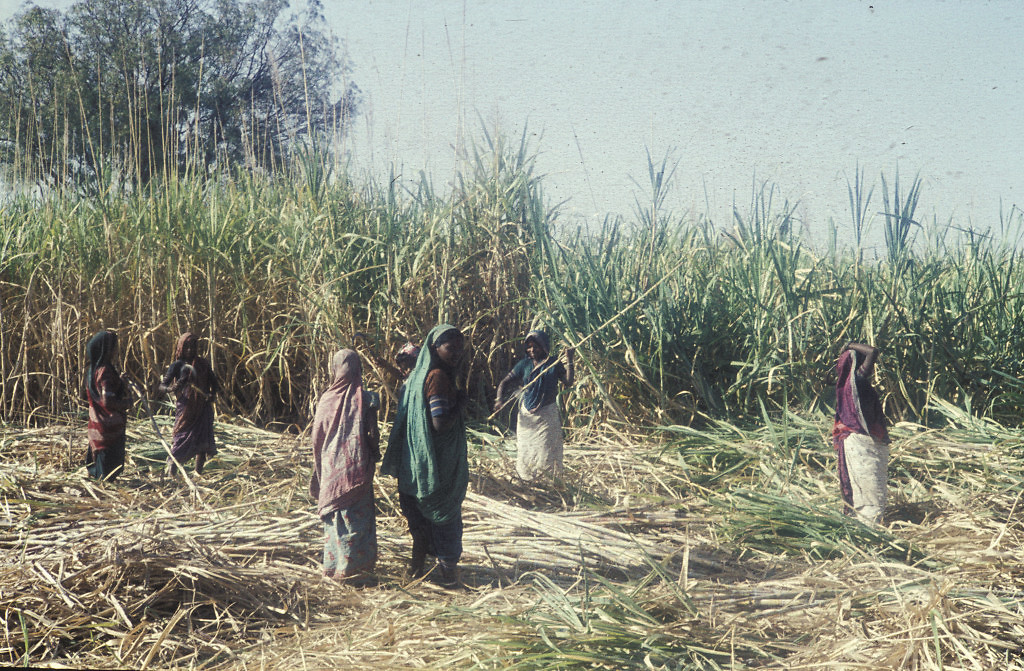Rajasthan Chief Minister Vasundhara Raje’s sop on agricultural electricity connection should be seen as an episode in the Bharatiya Janata Party’s bid to placate farmers. Such sops have failed in the past to end, or even mitigate, rural distress; this too will fail.
Hours before the Election Commission’s announcement about the upcoming Assembly elections in Rajasthan and four other states, she promised over 12 lakh farmers that they would get free power up to Rs 10,000 for a year on their agricultural connection. The supposed largess will come as direct benefit transfer (DBT), farmers paying the bill first and getting a maximum amount of Rs 833 per month. Just as consumers get money back on cooking cylinders all over the country.
On the face of it, Indian farmers seem to be the most protected, pampered, even spoilt lot in the country. They get free or cheap power, subsidy on fertilizers, minimum support prices or MSPs, cheaper credit (and frequent loan waivers), exemption from paying income tax, and so on. Somebody landing from Mars would surmise that farmers are the most prosperous people and agriculture the most booming sector in India. But nothing could be farther from the truth.
For it is a well-known fact that agriculture is a laggard; about half the country’s working population is engaged in it, but its contribution to the gross domestic product or GDP is less than 15 per cent. The need of the hour is lateral thinking, to check the premises of the existent farm policy per se, to open up the sector, to introduce liberalization so that government controls are phased out and farmers get to do what they want to for higher revenues. But, unfortunately, that is nowhere in sight. Politicians of all hues and parties have only one objective—to win elections, by hook or by crook, by making populist promises.
The representatives of farmers, too, are unwilling to chart a new course for the rural economy. For instance, the Bharatiya Kisan Union (BKU), which organized a stir recently that choked the national capital region, was focused on the policies and programmes that have been the bane of agriculture.
After a meeting with Union Minister of State for Agriculture Gajendra Singh Shekhawat, BKU general secretary Yudhvir Singh said that “the government is silent on our demand for loan waiver, saying that the states had to take a decision at their level. Also, it said that fixation of MSP based on ‘C2’ input factor as per the Swaminathan Commission’s recommendations will be done in future.”
The demand for loan waiver is simply preposterous. To begin with, only a fraction of agriculturists, usually the better off, have access to institutional credit, so waivers don’t help the larger mass. Secondly, if farmers’ loans are waived off, why can’t those of sweepers, plumbers, electricians, taxi drivers, and the now famed pakodawallahs? They too are working people, barely eking out an existence.
And, finally, a myriad of loans all over the country, running into lakhs of crores, have not made the conditions of peasants any better.
Similarly, there have been a zillion commissions and committees with their esoteric formulas to offer attractive MSPs. All of them have failed.
The only way forward is the dumping of socialist policies that still plague agriculture. Farmers of India are a sturdy lot, who brave weather and elements. They don’t need pity or compassion; they need freedom—freedom to grow what they want to, freedom to sell their produce whomsoever they want to (in the domestic or global market), at whatever prices they can manage to negotiate.
This is something neither politicians nor the so-called farmer leaders are interested in. So, the patently anti-farmer APMC regime is still in place, lorded over by middlemen with political connections. Agriculturists are forced to sell as the mandis prescribed by the authorities. The farmer as well as the consumer gets fleeced.
And the charade goes on—played out by sanctimonious politicians and garrulous farmer leaders.
